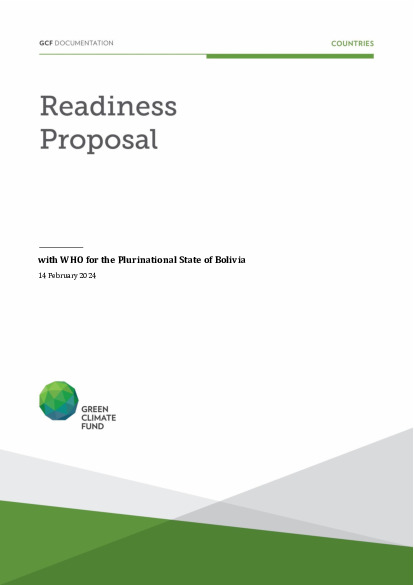Promoting a sustainable and resilient unified health system in Bolivia in the face of climate change

Promoting a sustainable and resilient unified health system in Bolivia in the face of climate change
Bolivia's population is threatened by floods, droughts, forest fires and vector-borne diseases caused by climate change. The health sector struggles with accessing international funding, lacks coordination with climate finance processes, and has limited capacity for the design and implementation of climate-related projects. Collaboration between the health sector and other climate change sectors is insufficient, and health benefits from emissions reductions are often overlooked.
To address these issues, the proposed readiness support aims to strengthen Bolivia's climate policies, plans, and institutional arrangements. Activities include mainstreaming health in national climate change planning, conducting vulnerability assessments, establishing a national climate and health observatory, evaluating the sustainability of healthcare facilities, measuring the health benefits of climate action, prioritizing potential health and climate investments, developing of a concept note for health and climate change, and educating decision makers, health professionals, and the public on how to be more sustainable and resilient in the face of climate change.